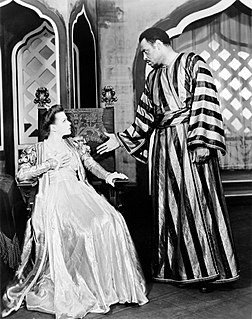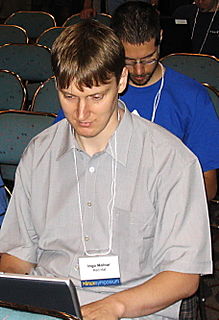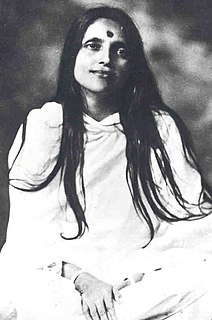A Quote by Charles Baudelaire
These beings have no other status, but that of cultivating the idea of beauty in their own persons, of satisfying their passions, of feeling and thinking.... Contrary to what many thoughtless people seem to believe, dandyism is not even an excessive delight in clothes and material elegance. For the perfect dandy, these things are no more than the symbol of the aristocratic superiority of his mind.
Related Quotes
Theoretically, the actor ought to be more sound in mind and body than other people, since he learns to understand the psychological problems of human beings when putting his own passions, his loves, fears, and rages to work in the service of the characters he plays. He will learn to face himself, to hide nothing from himself- and to do so takes AN INSATIABLE CURIOSITY ABOUT THE HUMAN CONDITION
What greater weakness can there be than not to know what is the source of one's being, of one's life, of one's senses, of one's knowledge, and what is to be their end? What can be more deeply disheartening than to wonder whether one's soul is, perhaps, a material thing, like a stone or a reptile, corruptible like these base creatures? Is there not more strength and greatness of mind in admitting the idea of a being superior to all other beings, who has made them all and to whom all owe their existence; of a being supremely perfect, who is pure, who had no beginning and can have no ending, of whom our soul is the image and, so to speak, a portion, being a spiritual and immortal thing?
The skeptic says that the believer has lost his own mind under God. On the contrary, it is the people who follow God who are most like his children, who willingly and consciously walk in his will; but those who oppose him oppose him vainly and at their own expense, and, figuratively, seem to be more like his tools. They don't diminish his glory, but instead he still manages to use them in ways of unconsciously carrying out his will.
I find one vast garden spread out all over the universe. All plants, all human beings, all higher mind bodies are about in this garden in various ways, each has his own uniqueness and beauty. Their presence and variety give me great delight. Every one of you adds with his special feature to the glory of the garden.
We ought, all of us, to realize each other in this intense, pathetic, and important way. If you say that this is absurd, and that we cannot be in love with everyone at once, I merely point out to you that, as a matter of fact, certain persons do exist with an enormous capacity for friendship and for taking delight in other people's lives; and that such persons know more of truth than if their hearts were not so big.
I have never said that human society ought to be aristocratic, but a great deal more than that. What I have said, and still believe with ever-increasing conviction, is that human society is always, whether it will or no, aristocratic by its very essence, to the extreme that it is a society in the measure that it is aristocratic, and ceases to be such when it ceases to be aristocratic. Of course I am speaking now of society and not of the State.






































